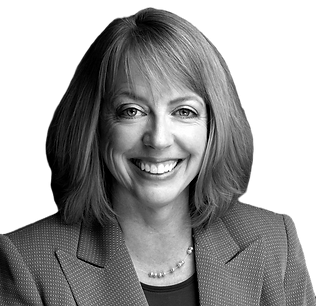Presented with the challenge of the pandemic, Dr. Pamela Harris didn’t just want her education nonprofit to hang on and survive. She wanted Mile High Early Learning to thrive. And with that mindset, the organization pursued several initiatives, including:
A remote learning curriculum for children six months to five years. Families received support for technology to access learning opportunities online along with home learning kits that included materials and supplies related to the curriculum.
Two new partnerships that embed early care and learning for those farthest from resources.
Securing $2.5 million in new funding to expand comprehensive education, health and support services to more children and families.
Partnering with a university’s department of counseling to provide mental health and wellness support for staff.
Mile High Early Learning (MHEL) is Denver’s largest and oldest provider of subsidized high-quality early care and education and is celebrating its 50th anniversary in 2022. Since the organization’s founding, MHEL has provided early care and education to over 50,000 children. MHEL aims to enable all children to succeed in school by providing resources and education to inspire a lifetime of learning and self-sufficiency. Each year, MHEL serves over 1,500 children, families, caregivers and early educators through six early learning centers and 10 child care partner sites.
Harris started Head Start at Clayton Early Learning to provide comprehensive services to children and families through federal funding. She then served as the City of Denver’s Head Start Director. In 2007, Harris became the inaugural chief operating officer for the Denver Preschool Program. Since her move to MHEL in 2009, Harris has grown the budget threefold, from $5 million to $15 million.
When the pandemic forced a two-month closure of centers, Harris quickly pivoted MHEL to providing basic needs to families — diapers and formula, 10,000 meals and $64,000 in financial assistance for necessities. Harris also created a remote learning program for children six months to three years old so families concerned about attending in person could still have learning opportunities for their children. Harris worked with the board to create a staff emergency relief fund for those employees who needed additional financial assistance because of the impact of COVID-19. She provided a $2,000 wellness stipend for all staff. Harris also brought in race and equity expert facilitators following demonstrations for racial justice. She completed the purchase of a new building for the permanent home of MHEL that has space for additional staff, technological capability to expand teacher training and meeting space for the community.
As president and CEO, Harris leads and manages 150+ staff, serving over 1,500 children and families annually. She is a recognized global expert in her field. In 2017, Harris was invited to testify in front of the U.S. House of Representatives Committee on Education and the Workforce. In 2019, she was invited by the Kingdom of Saudi Arabia Ministry of Education to discuss public-private partnerships and business investment in early education. She has been on the faculty at three colleges, helping to educate and mentor the next generations of early childhood professionals and leaders.
One of her most significant commitments is as co-chair of Colorado’s Early Childhood Leadership Commission, the state advisory council appointed by the governor that oversees early childhood systems.
Equity is a driving force and priority for Harris, both in her role at Mile High Early Learning and beyond.
“I am committed in my work and role as a leader to deepen our world’s understanding of equity, race, and diversity,” she said. “The importance of early care and education in challenging and breaking through systemic inequities cannot be overstated. Children recognize unequal treatment because of skin color by age two years, demonstrate social bias by age three years and recognize and act against racial injustice by ages four and five years. Children’s experiences in their formative years have the power to change our world. My opportunity is to center equity in early childhood education, workforce preparation and public policy.”







